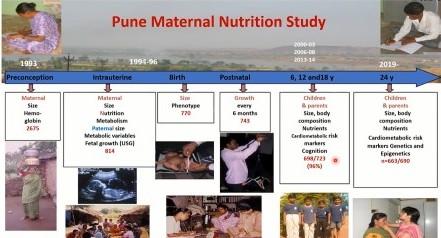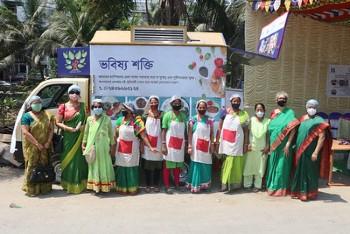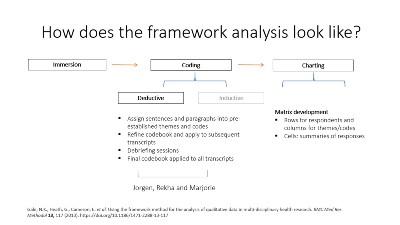Submitted by K.L. Hlaba on Mon, 13/12/2021 - 13:53
From Agricultural Nutrition and Social Empowerment to Human Nutrition and Health in India – a workshop held on 24 July 2021. Organised by the NNEdPro Global Centre for Nutrition and Health, in partnership with the University of Cambridge TIGR2ESS GCRF Programme and the University of Surrey Maharashtra GCRF.
Life course evolution of diabetes – learnings from the Pune Maternal Nutrition Study. By Prof Chittaranjan Yajnik, Director, Diabetes Unit, King Edward Memorial Hospital and Research Centre, Pune, India.
The Pune Maternal Nutrition Study started in 1993 in six villages near Pune, India, to determine the cause of low birthweight (LBW) in India and how we can study the life course evolution of diabetes and other health outcomes. Key indicators such as maternal size, nutrition, paternal size, metabolic variables and fetal growth were measured. The mothers (study participants) were followed over 24 years, with a follow-up rate of 96%. This has resulted in an impressive biobank of DNA, plasma, urine, buccal swabs, and microbiota samples.
In his presentation, Prof Yajnik provided a brief overview of type 2 diabetes (T2DM), including the natural history of the disease and associated risk factors (e.g., genetics, age, obesity, diet, and physical inactivity). He further discussed the association between LBW, T2DM and other metabolic conditions. LBW was shown to be associated with T2DM and other metabolic conditions (Hales et al. 1991) owing to undernutrition in the early stages of the life-course, which can cause epigenetic changes and, in turn, increase susceptibility to metabolic disease (also known as the ‘thrifty gene hypothesis’).
Anaemia in adolescent females and pregnant women: findings from the MAS Phase 1 and 2 studies by Dr Anand Ahankari, Surrey University, UK.
Iron deficiency anaemia is highly prevalent in India, especially among pregnant women. Approximately 55% of girls and women of reproductive age have nutrition-related iron deficiency anaemia, and some Indian states have as high as >70% prevalence. In adolescent females, anaemia prevalence was extremely high (87%), and the likelihood of being anaemic increased significantly with age.
Factors associated with lower anaemia risk were mid-upper arm circumference, MUAC (> 22 cm) and >3 days/week consumption of fruits and rice. In the case of pregnant women, about 77% were affected by anaemia, and this increased risk of anaemia was more notable in women with consanguineous marriages. Consanguineous marriages were also a major risk factor for low birth weight (LBW). Post-delivery data from full-term singleton live births showed a 7% prevalence of LBW.
Lastly, haemoglobin levels in the population were associated with environmental exposures. Understanding this observation may help design better public health interventions to improve the health and wellbeing of adolescent females in rural India.
Nutrition, wellbeing and empowerment: the thread that connects by Prof Ramanjit K. Johal, Punjab University, India.
Prof Johal presented the work Punjab University has done relating to nutrition. Punjab University comprises a leading multidisciplinary team and is working to inspire change in health behaviours in marginalised communities. She described the TIGR2ESS flagship programmes across education, food, nutrition, empowerment, employment, and entrepreneurship and its expected outputs to improve the wellbeing and nutrition of farmers and rural communities in India.
Prof Johal and colleagues conducted a 24-hour dietary recall study in two villages; however, the data is yet to be analysed. Meanwhile, their work is moving towards sustainable agricultural solutions with their organic kitchen gardens and sewing training projects to improve awareness about food sources and develop culinary and entrepreneurship capacities with their stakeholders, despite challenges with COVID-19. Their work continues to show promise in improving knowledge about basic nutrition, food groups, increasing awareness of healthy eating, increasing confidence among stakeholders to discuss their health problems, as well as facilitating knowledge dissemination with peer groups and family members.
Opportunities and challenges – Nutritional knowledge and rural livelihoods by Prof Shailaja Fennell, University of Cambridge, UK.
Prof Fennell discussed lessons learned from the previous green revolution for sustainable agriculture, which focused on well-irrigated agricultural zones and semi-arid zones. However, marginal communities and the role of women as millet producers in the community were largely overlooked. Due to this neglect, there was a failure to recognise the importance of millet production in these marginalised communities.
Prof Fennell also shared experiences with awareness building around millet production and consumption, in partnership with the International Crops Research Institute for the Semi-Arid Tropics (ICRISAT) and Odisha Millet Mission. There have been various attempts to bring millets to the front of food discussions in both urban and rural areas. The issue is not a lack of knowledge, but that the knowledge on millet and its value chain is not internationally recognised. Building on the year of millets (2023) in cooperation with the Millet Mission, more advocacy for millet production and consumption is underway through institutional architecture, drawing on experiences, local biodiversity and combining tradition and science.
However, the value chain from production to plate needs to be improved to scale up millets. Current studies are tracing crop production from the rural household level to urban/rural household consumption. Phase one will focus on nutrition and livelihood activities at the household level to identify patterns. While phase two traces the journey of innovative production from the household farms to markets and then to the plate.
NNEdPro/Bhavishya Shakti Mobile Teaching Kitchen (MTK) project by Professor Sumantra (Shumone) Ray, NNEdPro.
Prof Ray presented on the NNEdPro/Bhavishya Shakti Mobile Teaching Kitchen (MTK) initiative in India. The MTK was first launched in 2017 in two slums in Kolkata, India, and since then has been adapted to other parts of India (Sanghol and Punjab). The MTK initiative aims to tackle food insecurity and malnutrition among underserved and vulnerable populations by engaging with local communities to deliver health and malnutrition screening sessions and effective nutrition education while distributing nutritionally balanced, locally sourced, and affordable meals. It also seeks to disrupt the vicious cycle of intergenerational poverty by introducing communities to sustainable development initiatives and a skill-building platform that links them with dignified livelihood alternatives. You can learn more about the NNEdPro/Bhavishya Shakti MTK initiative in Kolkata here.
Impacts of COVID-19 on India’s food system and food environment by Jørgen T. Johnsen, Dr Marjorie Lima Do Vale, NNEdPro and Dr Rekha Bhangaonkar, Cambridge University, UK.
Jørgen Johnsen presented the objective of the survey: to gather the TIGR2ESS flagship project teams’ perspectives on the impact of COVID-19 on different aspects of India’s food systems and environments. This included food supply, the food environment, consumer behaviour and diet quality. Currently, the findings from the qualitative interviews are being coded and summarised for a paper.
Dr Lima Do Vale described the analytical framework (see image below) used to summarise the data based on the UN Nutrition framework of COVID-19’s impact on food systems. Lastly, Dr Bhangaonkar described the ‘Miro’ tool used and the process of implementing codes to summarise each identified theme. The codes were then adapted to NVivo for qualitative data analysis.
Food, nutrition and education interface – A comprehensive nutrition curriculum by Dr Padmaja and team, ICRISAT, India.
Dr Padmaja introduced the objective of the health and nutrition literacy programme developed by ICRISAT. Using comprehensive nutrition messaging, this programme aims to improve the wellbeing of poor rural tribal communities in Telangana, India. The study included adolescent girls, pregnant and lactating women (n=921), and the research questions were broadly categorised into assessing current nutrition knowledge, attitude and practice (KAP); how to improve these factors using nutrition messaging; and evaluating the efficacy of the intervention, in terms of improvements in KAP.
The KAP focused on food safety, hygiene, nutrition and health. According to the results at baseline, the nutrition knowledge of pregnant and lactating mothers was inadequate, with an average score of less than 50% on the assessment. The pregnant women scored low on attitudes regarding healthy diets compared to lactating mothers and frontline workers, and although attitudes translate into practice, the baseline data revealed that all categories of respondents were not adopting appropriate dietary and nutrition practices. The awareness of iron, vitamin A and iodine was also generally low. Further research activities to be completed.
Written by Wanja Nyaga and Jorgen Johnsen
Edited by Sento Kai Kargbo, Sarah Anderson and Professor Sumantra Ray
Images supplied by the NNEdPro Group.



